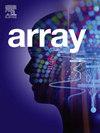Assessing generalizability of Deep Reinforcement Learning algorithms for Automated Vulnerability Assessment and Penetration Testing
IF 4.5
Q2 COMPUTER SCIENCE, THEORY & METHODS
引用次数: 0
Abstract
Modern cybersecurity best practices and standards require continuous Vulnerability Assessment (VA) and Penetration Test (PT). These activities are human- and time-expensive. The research community is trying to propose autonomous or semi-autonomous solutions based on Deep Reinforcement Learning (DRL) agents, but current proposals require further investigations. We observe that related literature reports performance tests of the proposed agents against a limited subset of the hosts used to train the models, thus raising questions on their applicability in realistic scenarios. The main contribution of this paper is to fill this gap by investigating the generalization capabilities of existing DRL agents to extend their VAPT operations to hosts that were not used in the training phase. To this purpose, we define a novel VAPT environment through which we devise multiple evaluation scenarios. While evidencing the limited capabilities of shallow RL approaches, we consider three state-of-the-art deep RL agents, namely Deep Q-Network (DQN), Proximal Policy Optimization (PPO), and Advantage Actor–Critic (A2C), and use them as bases for VAPT operations. The results show that the algorithm using A2C DRL agent outperforms the others because it is more adaptable to unknown hosts and converges faster. Our methodology can guide future researchers and practitioners in designing a new generation of semi-autonomous VAPT tools that are suitable for real-world contexts.
评估用于自动漏洞评估和渗透测试的深度强化学习算法的通用性
现代网络安全最佳实践和标准要求持续进行漏洞评估 (VA) 和渗透测试 (PT)。这些活动耗费大量人力和时间。研究界正在尝试提出基于深度强化学习(DRL)代理的自主或半自主解决方案,但目前的建议还需要进一步研究。我们注意到,相关文献报告了针对用于训练模型的有限主机子集对所建议的代理进行的性能测试,从而对其在现实场景中的适用性提出了质疑。本文的主要贡献在于通过研究现有 DRL 代理的泛化能力,将其 VAPT 操作扩展到训练阶段未使用的主机,从而填补这一空白。为此,我们定义了一个新颖的 VAPT 环境,并通过该环境设计了多个评估场景。在证明浅层 RL 方法能力有限的同时,我们考虑了三种最先进的深层 RL 代理,即深层 Q 网络(DQN)、近端策略优化(PPO)和优势行为批判(A2C),并将它们作为 VAPT 操作的基础。结果表明,使用 A2C DRL 代理的算法优于其他算法,因为它对未知主机的适应性更强,收敛速度更快。我们的方法可以指导未来的研究人员和从业人员设计出适用于现实环境的新一代半自主 VAPT 工具。
本文章由计算机程序翻译,如有差异,请以英文原文为准。
求助全文
约1分钟内获得全文
求助全文

 求助内容:
求助内容: 应助结果提醒方式:
应助结果提醒方式:


